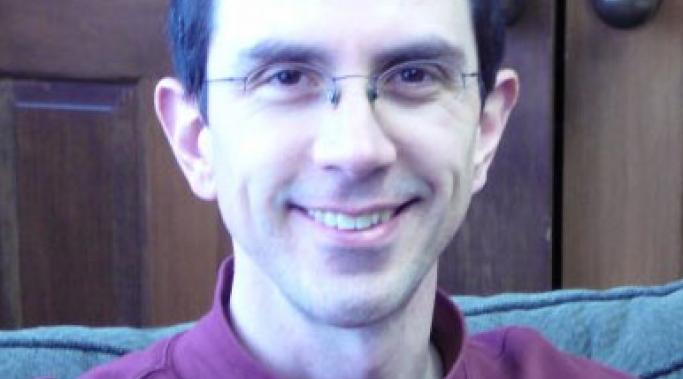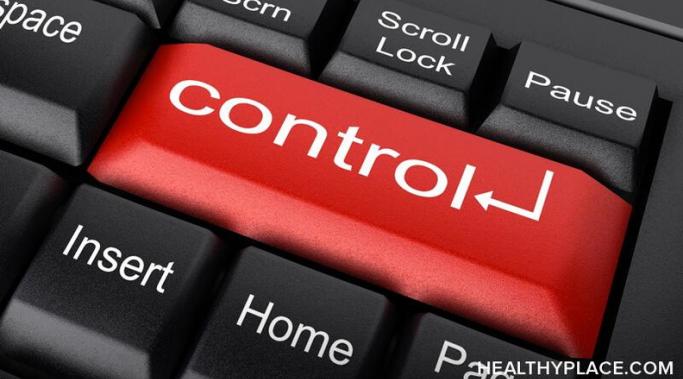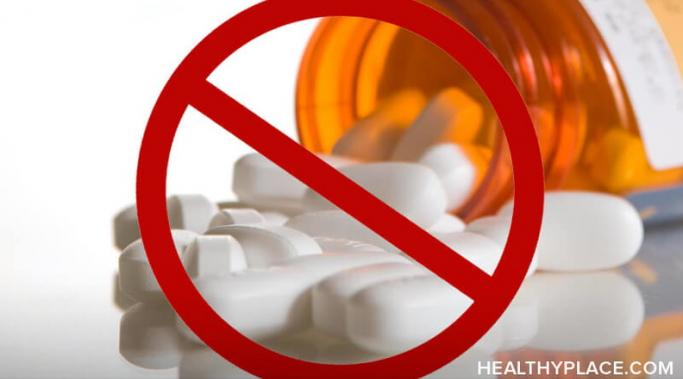Blogs
If Putting Out Negative Energy, Are You Attracting The Right People?
One problem I see often in survivors of posttraumatic stress disorder (PTSD) moving through trauma recovery is unhappy self-discovery: They don’t like themselves much.
I remember feeling that way myself. Years after my college graduation, I hadn’t been able to build or sustain a career, income or professional or personal relationships. My ties to my family were terribly strained by both my self-imposed isolation and my raging to keep everyone at arm’s length.
Sleep deprived and anxious, I was convinced I was insane and beyond help. Moving through the private hell of my everyday life, I thought pretty poorly of myself. (Could you blame me?)
Treating Anxiety is Not Something We Can Do Alone
First of all, let me say how exciting it is to be blogging at HealthyPlace. I’m honored, and will I do my very best to live up to the privilege of being asked to join this amazing community.
Speaking of community, sharing what it’s like to have generalized anxiety disorder with others who “get it” has been essential in the treatment of my own anxiety. There simply is no substitute for sharing our experiences with others like us in an environment that’s free of shame, judgment, and stigma. The healing power of being understood and accepted is truly incredible, and I intend to make it the foundation of the Treating Anxiety blog.
If you have just completed an addiction treatment program and are returning home, the idea of what the future holds can be pretty frightening. Your alcohol or drug rehab program provided you with a structured and secure environment that sheltered you from the stressors of the outside world and greatly minimized your triggers. You may be wondering if you can continue to stay sober, how friends and family members are going to react, and how hard it may be to adjust to life once again.
Most days, I’m pretty accepting of having depression. Some days, I’m not. One of those days happened recently when I heard two young women excitedly discussing their plans for the future. They looked to be about the age I was right before I was diagnosed. Back then I had concerns and worries, but big mental health diagnoses were just not on my horizon. As far as I knew at least.
Anxiety and sleep problems can have a twisted, rather enmeshed relationship with each other. They each have a similar goal: to make us miserable. They are evil little accomplices on a mission to rule our world. It’s bad enough when just one of them is working its sinister plan within us, but when they join forces and attack us simultaneously, it’s downright miserable.
Have you ever noticed that control is a major life issue for people? And have you noticed that we all, as human beings, want to have control of ourselves, others, and pretty much the entire universe, if we had our way? Of course, you've noticed, because you've lived around other people enough to know that our quest to control permeates much of our lives.
I feel a lot of trepidation writing this article because it is based on such a controversial topic -- medication and stigma, or what I fondly refer to as med-igma. The stigma of taking mental health medication is something many of us know all too well. Hiding the fact that we take medications, feeling ashamed and fearful that other people will find out, and the internal med-igma that taunts us as we fill yet another glass of water to swallow our daily dose of prescribed medications.
Everywhere you turn, you see or hear about CrossFit, Zumba or Mud Runs. Within minutes of scrolling down your Facebook feed, you may see people on diets or cleanses or posting “before and after” photographs. It’s terrific that people are working on bettering themselves in healthy, up-and-coming ways, but it also takes a toll on those dealing with body image issues.
By having photographs and messages thrown from every angle, some people may see this not as being helpful, but as a reminder that they continue to struggle. For those who do not have the motivation or interest in getting healthy or fit, these constant reminders can become overwhelming. We know that feeling overwhelmed often leads to anxiety or anger and when you’re at that point -- you must find a safe outlet for those emotions.
One of the requirements of being a HealthyPlace blogger is personal experience. In other words, having an anxiety disorder qualifies me to be one of the authors of the anxiety blog. More specifically I have panic attacks, crippling self-doubt, paranoia, and general anxiety. My blog application was one of the only times this was a plus.
Weekly blogging isn't an easy thing to do, despite the number of them out there. Topics need to be chosen, research done, comments read and responded to, titles selected, keywords considered, pictures picked, then it needs to be written, formatted, and scheduled all before it goes live for all the world to (hopefully) see.
As a writer, I know other writers, and the general consensus is that publishing anything, even a blog, is stressful. It invokes a sense of anxiety in the most grounded of people. A part of the writer – his work – is out there, waiting to be judged by strangers.
As many of you have heard by now, the drug ketamine is being investigated as an antidepressant. Yes, the drug known on the street as “Special K” causing it’s users to fall into a “k-hole” is being researched for clinical, antidepressant use. Ketamine has shown promise both in unipolar and bipolar depression.
There are many problems with ketamine, though, not the least of which being that it’s a scheduled substance in the United States and thus very hard to get your hands on. It can be done but it’s awfully pricey. There are also substantial side effects like hallucinations to worry about. (Ketamine is typically used as an anaesthetic in medicine.)
Luckily, there is a chemical cousin of ketamine on the horizon that appears to work in a similar way to ketamine but without all the unfortunate side effects.










I believe she will only be able to rid herself of her demons, and hopefully her BPD as well, when she's ready to confront the abuse of her father. If she can put the blame where it belongs, she may stop projecting that victim/perpetrator cycle on the present men in her life. These demons are a metaphor for the purgatory she has created for herself. That reality has consequences in the real world, but it need not be real in the tangible sense. Exorcising her demons will require the expenditure of real physical energy and probably the destruction of aspects of her personality. If this ever happens, and it's possible but not probable, then these demons will evaporate. They are only as real as one's personality is real. In short, reality is not the question, it's what you make of the things you feel to be real.